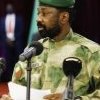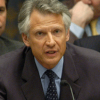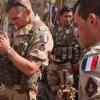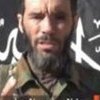States

Mali
135 articles

18 September 2023

Bamako (Mali) | 16 September 2023
by Thierry Meyssan

Paris (France) | 6 September 2022

18 August 2022

15 January 2022

20 October 2021

8 September 2021

24 May 2021

11 November 2013

10 February 2013
by Dominique de Villepin

Paris (France) | 10 February 2013
The recolonization of Africa

Brussels (Belgium) | 4 February 2013
by F. William Engdahl

31 January 2013

30 January 2013
"The Art of War"
by Manlio Dinucci

Rome (Italy) | 24 January 2013